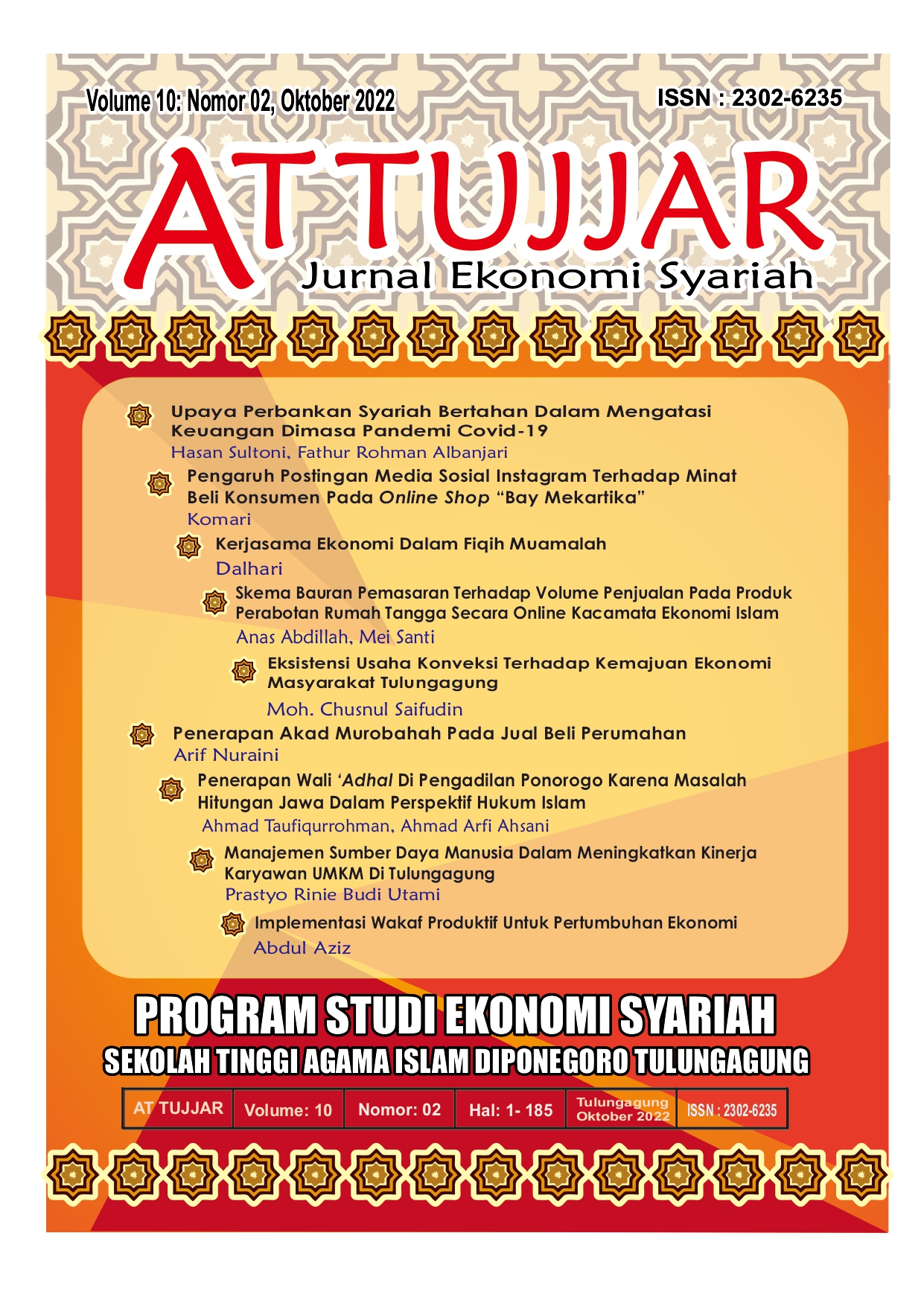PENETAPAN WALI ‘ADHAL DI PENGADILAN AGAMA PONOROGO KARENA MASALAH HITUNGAN JAWA DALAM PERSPEKTIF HUKUM ISLAM
Abstract
The sustainability of human life will not be able to last long unless it is maintained by good and quality generations. It is impossible for a good and quality generation to be born except from a marriage and family that is intact and harmonious, has strong faith, is obedient to worship and has noble character. Therefore, the marriage of Adha is the only best way to give birth to a chosen generation and multiply offspring according to the guidance of Islam.
In marriage there are five pillars that must be fulfilled, namely: 1) the bride and groom, 2) two witnesses, 3) the guardian of the woman, 4) consent, 5) kabul. The requirement for a guardian in marriage is basically the agreement of the majority of scholars, except for the Hanafi Madhab which does not require a guardian for women, especially if the woman is an adult and is able to take responsibility for her every word and deed.
In fact, the marriage guardian is often a problem or obstacle in carrying out a marriage because the most entitled marriage guardian is not willing or refuses to be a guardian for the prospective bride for various reasons, both reasons justified by sharia and those not justified by the law. syar'i which is called the guardian of 'Adhal.
The majority of Javanese people still use Javanese traditional traditions, in essence, customary law itself is a tradition that has been rooted in society before Islam came to Java. So do not be surprised, if in worship practices and muamalah, especially in the case of marriage, they still use Javanese customs. For the Javanese people, marriage is a very sacred thing, so in marriage there are some who still believe in the terms of the compatibility of the weton.
If the Javanese calculations between the prospective groom and the prospective bride do not match, then the marriage will never take place. They believe that if they do it, bad things will happen to them. The basis used by the community in Javanese calculations in Adha marriages is the beliefs of the predecessors or elders that are passed on to their descendants, and take from the customs in the community. Most of them just take the existing traditions.




